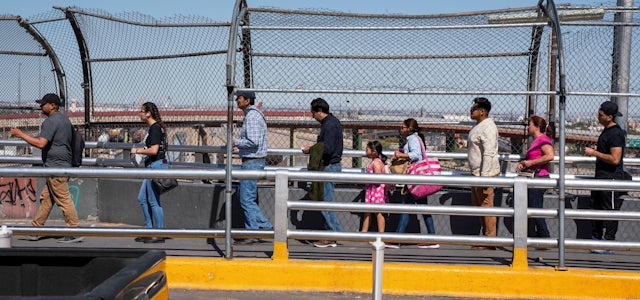
“It’s a hassle,” said Escobar, who is a competitive swimmer. “I have to get up at 4 in the morning to go to practice. I drive to a friend’s house … park my car next to the bridge, we walk over, and then we walk to the pool … and after practice, someone from El Paso gives us a ride to school.”
Even without early sports practice, the commute is often long, unpredictable, and tiring, which makes it the biggest reason for exhaustion for most of the students I spoke to. “It’s actually really difficult—you’re doing it daily, and you get burnt out,” said Aaron Otero, a high school senior with dual Mexican and U.S. citizenship.
Early days are the norm for most students who use the bridge, but overall experiences can differ. Some students and their families choose to undergo a long application process, complete with a rigorous background check, from CBP to obtain a special pass called a Secure Electronic Network for Travelers Rapid Inspection, or SENTRI, pass, that allows them to cross faster with fewer checks—similar to a TSA pre-check. Otero’s family is ineligible for the pass; since he and his sister don’t have one, they have to account for a two-hour wait at the bridge. “I play football, and we have to be there at 6:45 a.m., so I have to be out of my house by 5 a.m.,” Otero said. “If I’m not, I’m not going to make it.”